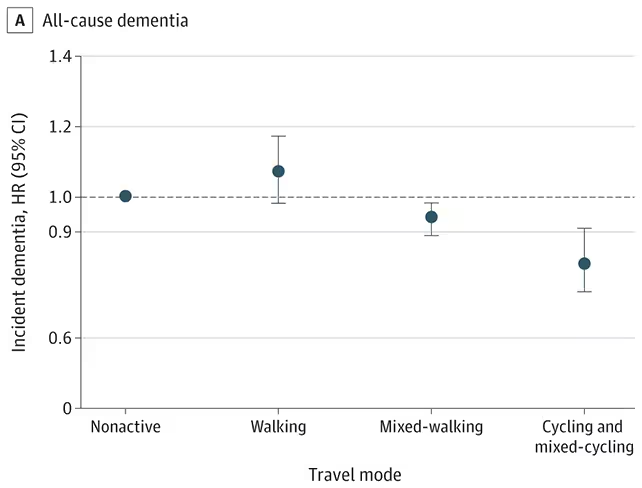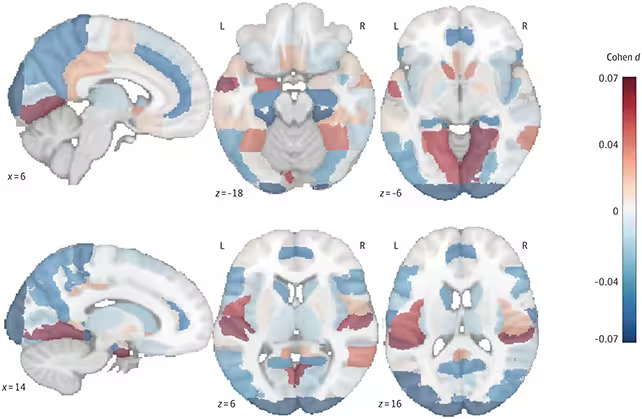3 Minutes
Recent scientific findings indicate that incorporating cycling into daily routines may offer robust protection against dementia, a condition that increasingly impacts aging populations worldwide. In a large-scale cohort study, researchers from Huazhong University of Science and Technology in China and the University of Sydney in Australia assessed the health records of nearly 500,000 individuals in the UK, providing compelling evidence that active commuting—especially by bicycle—can contribute to cognitive health and potentially prevent neurodegenerative decline.
Study Methodology: Examining the Link Between Transportation and Cognitive Health
The research team analyzed data from participants with an average age of 56, focusing specifically on the relationship between transportation habits and the subsequent development of various forms of dementia. The participants' travel methods were divided into four categories: non-active modes (such as driving or public transit), walking, a combination of walking and non-active travel, and cycling (used alone or combined with other modes). Notably, the study excluded work commutes to control for potential lifestyle and routine confounders.

Key Findings: Significant Risk Reduction Among Cyclists
The analysis revealed striking risk reductions among those who frequently cycled. Compared to individuals using only non-active transport, regular cyclists experienced:
- 19% lower risk of developing any type of dementia
- 22% reduced risk of Alzheimer's disease
- 40% lower risk of early-onset dementia (diagnosed before age 65)
- 17% reduced risk of late-onset dementia (diagnosed after age 65)
The study authors emphasized, "Our findings suggest that promoting active travel strategies, particularly cycling, may be associated with lower dementia risk among middle-aged and older adults, offering substantial public health benefits through accessible and sustainable lifestyle choices."
Scientific Insights: Why Might Cycling Protect the Brain?
Dementia is a multifaceted neurological disorder influenced by genetic, environmental, and lifestyle factors. The researchers highlighted several potential explanations for the protective link between cycling and lower dementia risks. Physical activity involved in cycling promotes cardiovascular and brain health, while spatial navigation and route planning may stimulate brain regions essential for memory. MRI results suggest that cyclists had larger hippocampal volumes—a brain area critical for memory consolidation. Additionally, exposure to outdoor environments and the cognitive demands of road awareness might further contribute to neuroprotection. Importantly, the study observed that the protective effects of cycling were less pronounced in individuals carrying the APOE4 gene variant, which is associated with higher Alzheimer's risk. Despite careful adjustments for variables such as age and education, the researchers caution that the findings demonstrate correlation rather than definitive causation, as additional unmeasured factors could be involved. However, these results align with a broader body of evidence linking physical activity to lower dementia risk.

The Growing Challenge of Dementia and the Path Forward
With global dementia rates projected to nearly triple—from 55 million cases in 2019 to a staggering 139 million by 2050—the urgency for affordable, effective prevention strategies has never been greater. The study's results suggest that regular cycling could be a practical and economical approach for many to support long-term cognitive health. The research team concludes, "Dementia remains a leading cause of dependency and disability among older adults, and our findings support the implementation of active transport initiatives to help mitigate this public health crisis."
Conclusion
As the world faces a mounting dementia epidemic, this extensive study highlights cycling as a powerful tool in dementia prevention. Encouraging active forms of transportation may not only foster environmental sustainability but also safeguard brain health as we age. Public health policies that support and promote cycling infrastructure could have far-reaching benefits, offering hope for healthier, more cognitively resilient populations.
Source: dx.doi



Comments